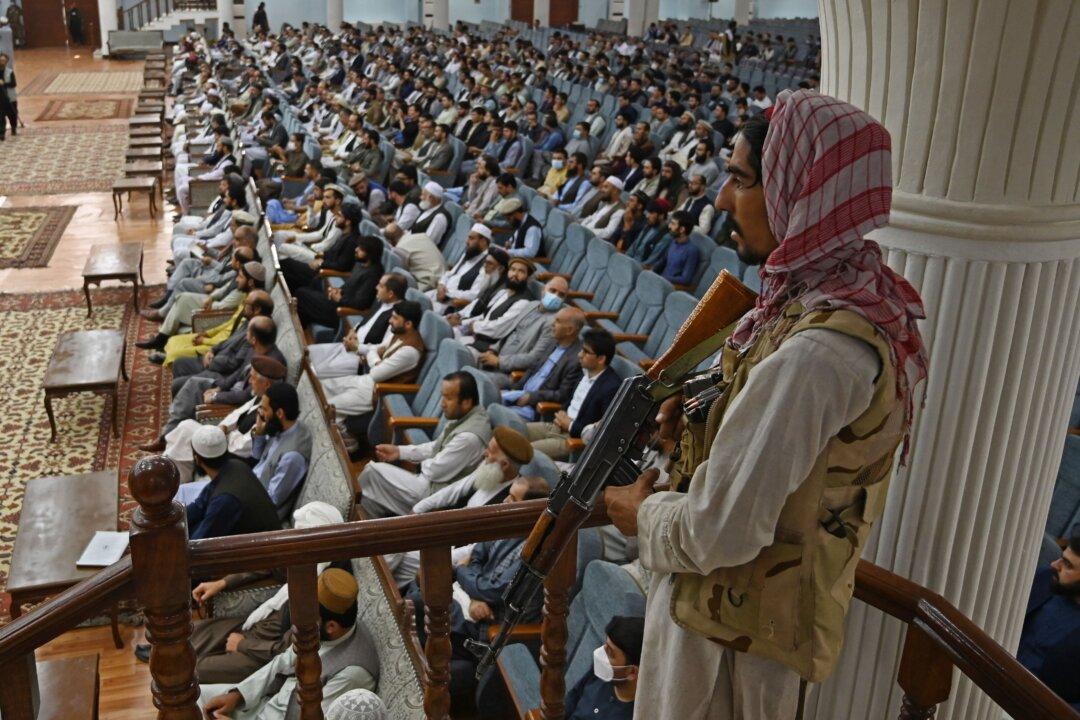The Taliban is gaining control over Kabul through threats and coercion, according to an Afghan citizen who has managed to flee his homeland before the terrorist group tracked down his address and paid a visit in search for him.
Just days after fleeing Afghanistan with his son and his wife on Aug. 24, Fawad, a PhD scholar who worked for the government prior to the Taliban takeover, told The Epoch Times that he had learned that a large group of Taliban members visited his home, demanding to know his whereabouts.





